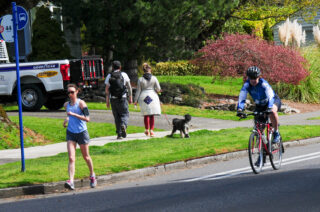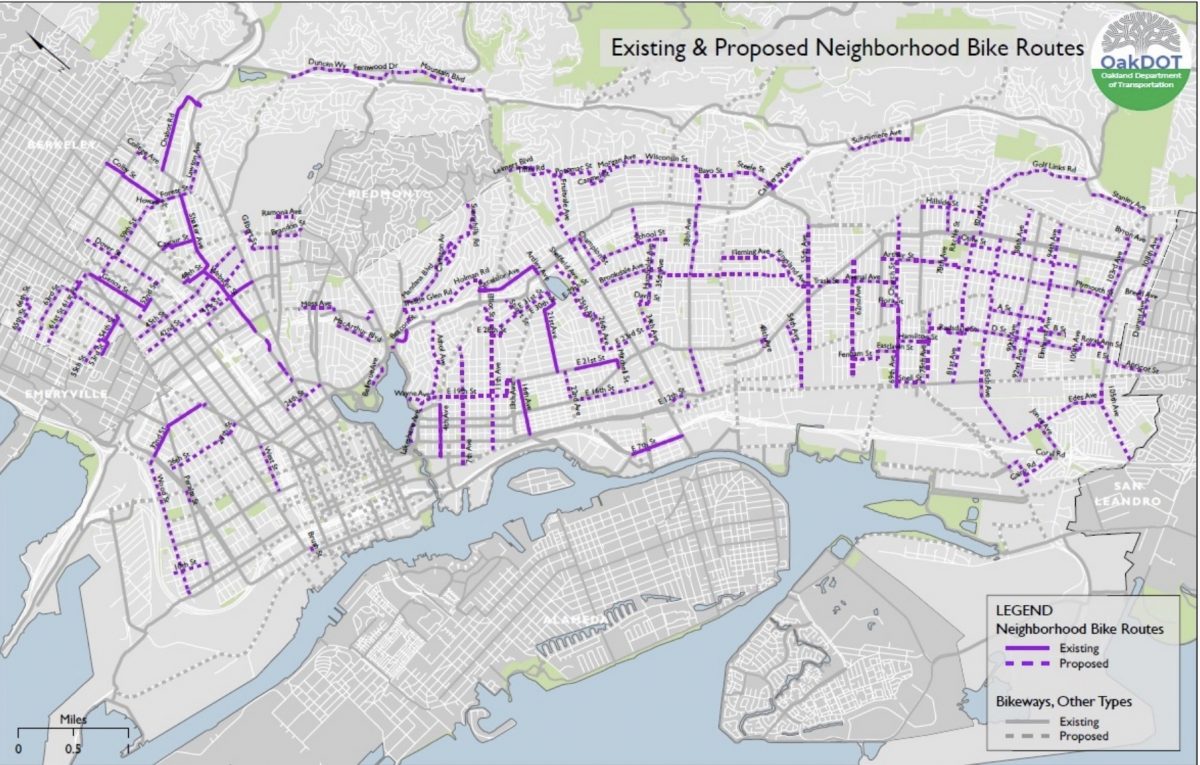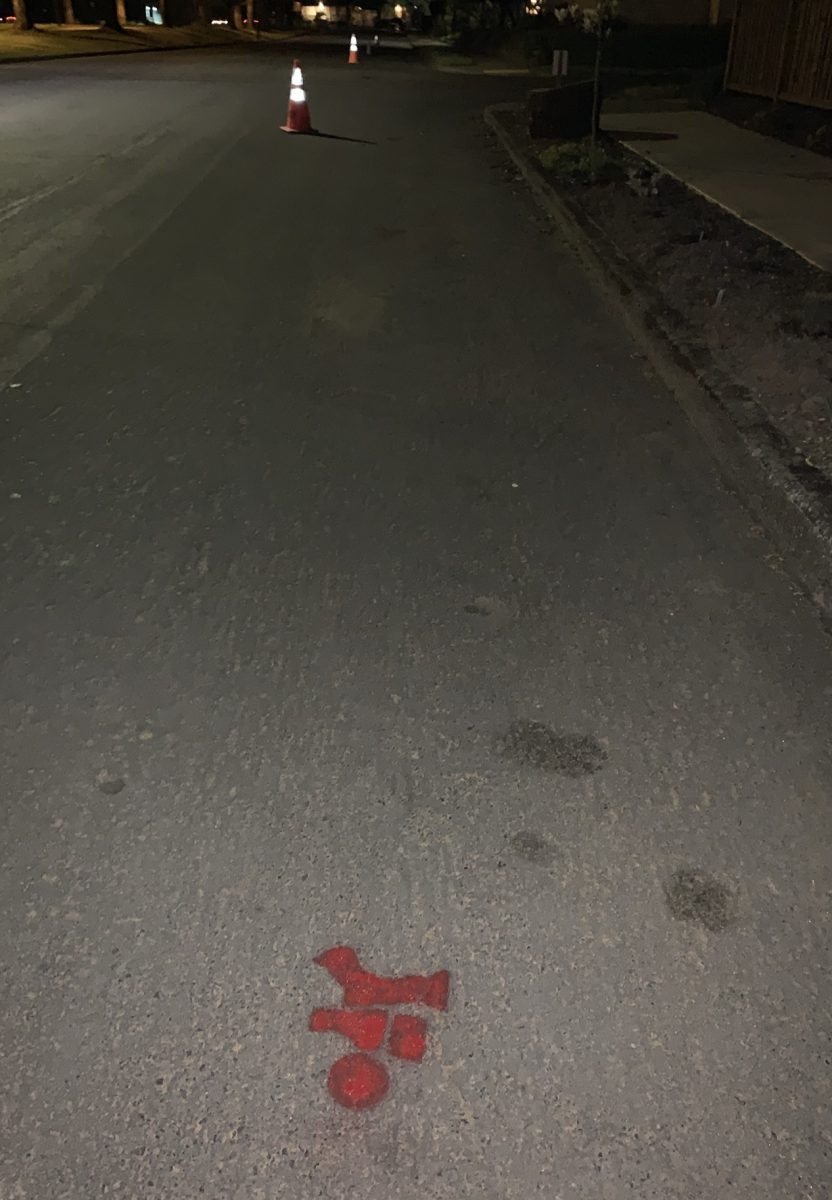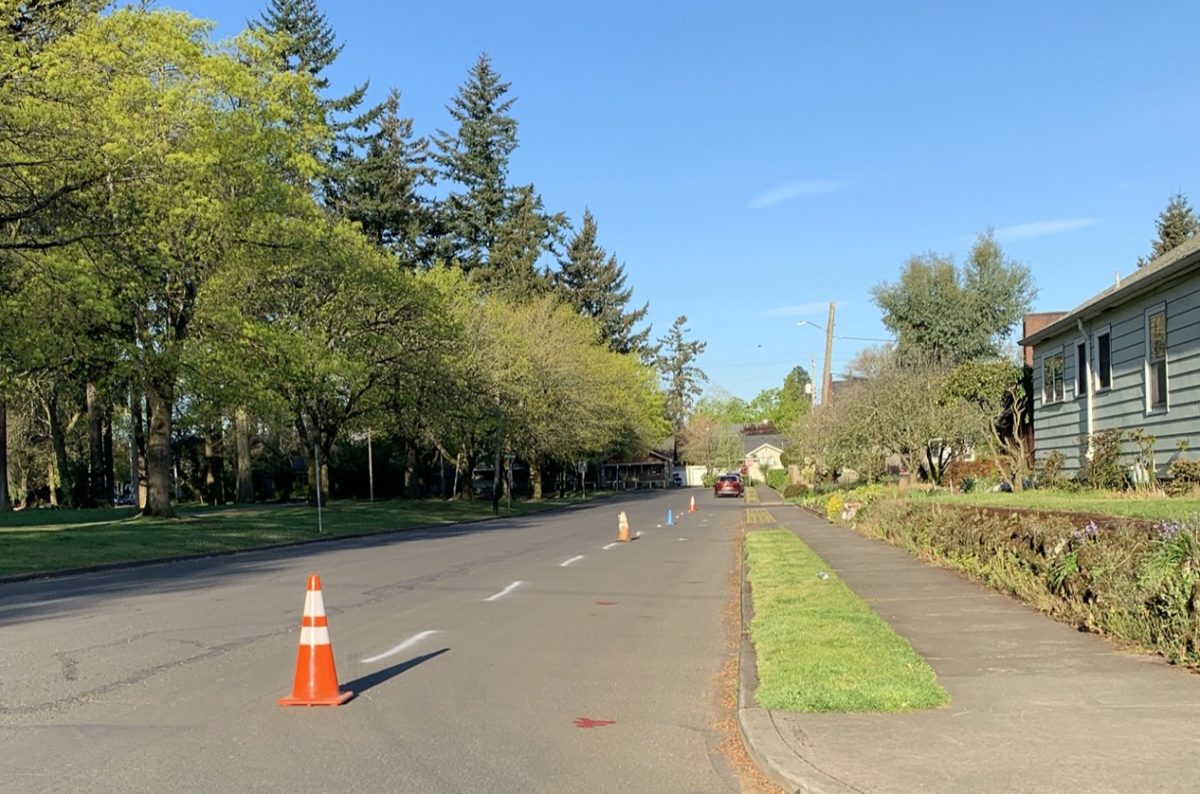
(Photo © J. Maus/BikePortland)
It’s been a rip-roaring 24 hours in the streets activism world.
We’ve seen Portland’s Mayor say “no” to adapting streets to be in line with Covid-19-induced behaviors. We’ve seen the City of Oakland become a national sensation for saying the opposite. We’ve had some important chats about how groups that work with people of color see the issue. And we’ve had our first dose of tactical urbanism from someone who’s tired of waiting for changes.
It started when Portland Mayor Ted Wheeler took to Twitter to answer a question about giving more street space to give people on foot and bikes. Wheeler deferred to Portland’s transportation bureau and said, “If we close a street, we potentially make it more attractive and create a destination where large groups can congregate. This is exactly the opposite of what we want to do.”
Wheeler’s answer is disappointing. Of course if PBOT closed just one street it would be mobbed. But no one has proposed that. One idea is to create more space on many streets citywide so that more Portlanders have access to it. Wheeler’s view also has a paternalistic tone toward people who aren’t in cars — as if they’re all unruly children who can’t be trusted to make responsible decisions.
And as many have seen on recent weekends, “congregate” is what’s already happening on some streets because there isn’t enough space for people to safely avoid one another without stepping in front of car drivers. And many of these drivers, according to local police, are going much faster and taking more risks these days — all the more reason to take space away from them.
Wheeler and his PBOT Commissioner Chloe Eudaly seem to have less trust in the expected behavior of bikers and walkers than they do in the existing behavior of drivers.
Advertisement

Meanwhile, Oakland Mayor Libby Schaaf sees things very differently. She announced today that her transportation bureau will ban and/or limit driving access on 74 miles of streets. That is not a typo. Schaaf made the move, “So that bicyclists and pedestrians can spread out and exercise and take in fresh air safely.”
Oakland is doing exactly the opposite of what the City of Portland wants to do.
One Portland resident who lives in the Beaumont-Wilshire neighborhood isn’t waiting for action from City Hall.



We received the images above this morning from someone who’s created a de-facto extended sidewalk on NE Skidmore east of 33rd adjacent to Wilshire Park. Using just cones and a bit of paint, the lane is intended to give people extra room to pass each other without being so exposed to drivers. The effort is similar to something that popped up today in Washington DC where someone has created a “pandemic extended sidewalk.”
These events kicked off a flurry of posts among myself and other people on Twitter today as we debate the politics and various aspects of this issue.
“When we surveyed 80 of our Cully community members to best figure out how to respond, mobility and travel did not come up.”
— Vivian Satterfield, Verde
“No racially or culturally specific groups in the Portland metro area that I am aware of… are calling for open streets.”
— Jess Thompson, Oregon Walks
I’ve been curious what local advocacy groups have been doing and why we haven’t heard from them about this issue. For one of them, Verde, who works to build community power and infrastructure in the Cully neighborhood, they’re simply working on other things.
“When we surveyed 80 of our Cully community members to best figure out how to respond at this time of crisis,” said Verde’s Vivian Satterfield, “mobility and travel did not come up.” Verde’s clientele is more concerns about how to access food, getting accurate information in their native language, rent relief, and internet access for their kids’ online schooling.
Satterfield also said some Cully residents won’t even make essential trips because they fear being asked for papers. “We are pivoting to be responsive to these needs first,” she added.
The leader of Oregon Walks, Jess Thompson, said they aren’t working on this issue be cause, “No racially or culturally specific groups in the Portland metro area that I am aware of — folks most negatively impacted by racist transportation policy — are calling for open streets.” Thompson, a self-described, “White, progressive active transportation advocate committed to mobility justice,” said she’s taking cues from mobility justice organizers and thinks the pandemic is an opportunity for transportation advocates to, “Slow down, listen to and believe folks most negatively impacted by racist transportation systems.”
Stay tuned: I’ve got a call with The Street Trust Executive Director Jillian Detweiler happening today and will update this post with her comments ASAP.
— Jonathan Maus: (503) 706-8804, @jonathan_maus on Twitter and jonathan@bikeportland.org
— Get our headlines delivered to your inbox.
— Support this independent community media outlet with a one-time contribution or monthly subscription.

